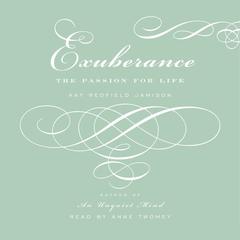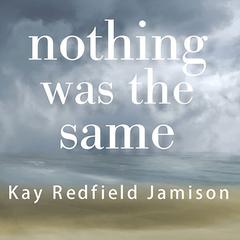 Play Audiobook Sample
Play Audiobook Sample
Fires in the Dark: Healing the Unquiet Mind Audiobook
 Play Audiobook Sample
Play Audiobook Sample
Quick Stats About this Audiobook
Total Audiobook Chapters:
Longest Chapter Length:
Shortest Chapter Length:
Average Chapter Length:
Audiobooks by this Author:
Publisher Description
The acclaimed author of An Unquiet Mind considers the age-old quest for relief from psychological pain and the role of the exceptional healer in the journey back to health. “To treat, even to cure, is not always to heal.” In this expansive cultural history of the treatment and healing of mental suffering, Kay Jamison writes about psychotherapy, what makes a great healer, and the role of imagination and memory in regenerating the mind. From the trauma of the battlefields of the twentieth century, to those who are grieving, depressed, or with otherwise unquiet minds, to her own experience with bipolar illness, Jamison demonstrates how remarkable psychotherapy and other treatments can be when done well. She argues that not only patients but doctors must be healed. She draws on the example of W.H.R. Rivers, the renowned psychiatrist who treated poet Siegfried Sassoon and other World War I soldiers, and discusses the long history of physical treatments for mental illness, as well as the ancient and modern importance of religion, ritual, and myth in healing the mind. She looks at the vital role of artists and writers, as well as exemplary figures, such as Paul Robeson, who have helped to heal us as a people. Fires in the Dark is a beautiful meditation on the quest and adventure of healing the mind, on the power of accompaniment, and the necessity for knowledge.
Download and start listening now!
Fires in the Dark Listener Reviews
Be the first to write a review about this audiobook!
About Kay Redfield Jamison
Kay Redfield Jamison is the Dalio Family Professor in Mood Disorders and a professor of psychiatry at the Johns Hopkins University School of Medicine, as well as an honorary professor of English at the University of St. Andrews in Scotland. She is the author of the national best sellers An Unquiet Mind, Night Falls Fast, and Touched with Fire and is coauthor of the standard medical text on manic-depressive illness, Manic-Depressive Illness: Bipolar Disorders and Recurrent Depression. Besides being a finalist for the 2018 Pulitzer Prize in Biography for Robert Lowell, Setting the River on Fire, she is a recipient of the Lewis Thomas Prize, the Rhoda and Barnard Sarnat International Prize in Mental Health from the National Academy of Medicine, and a John D. and Catherine T. MacArthur Fellowship.










